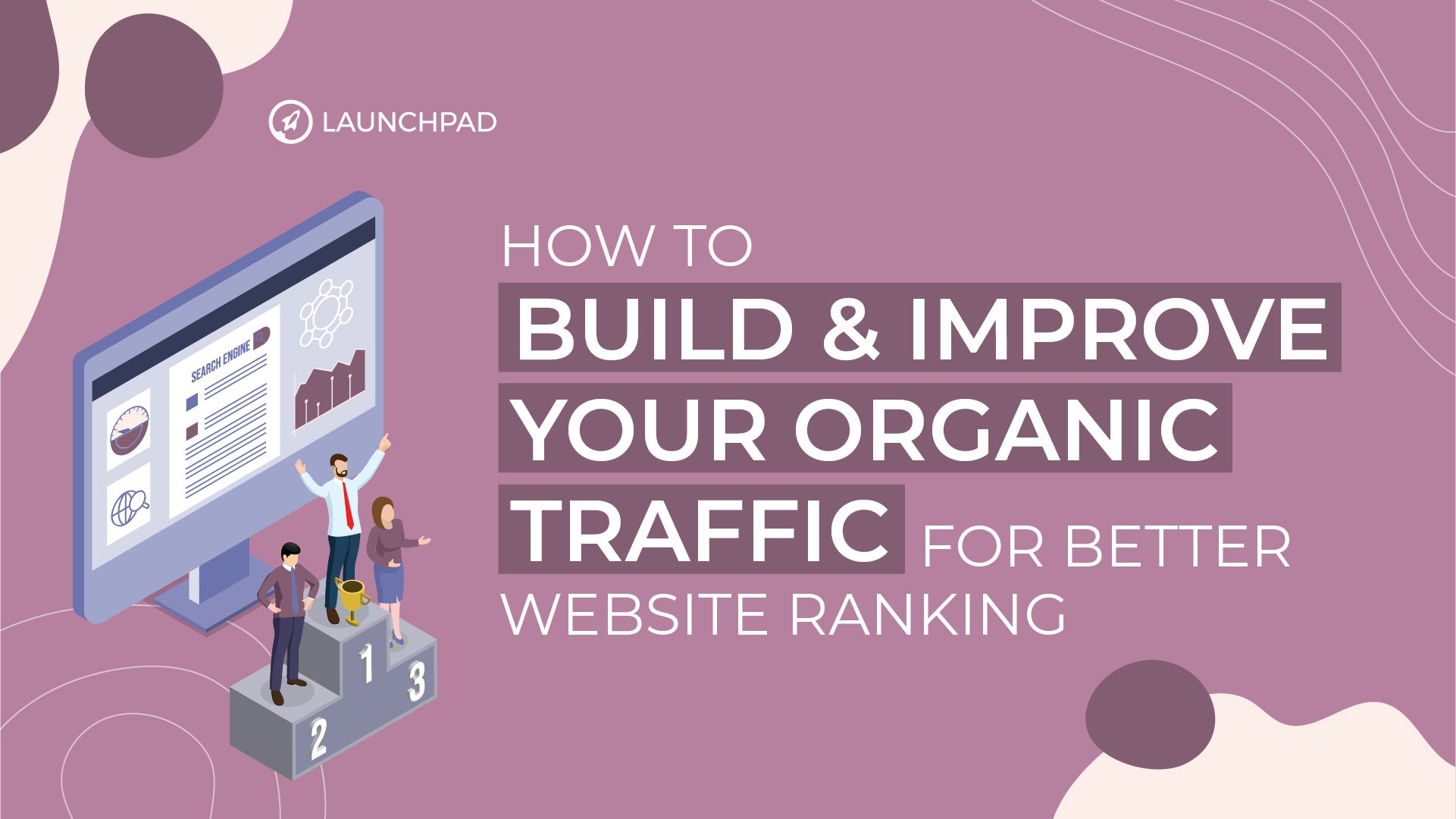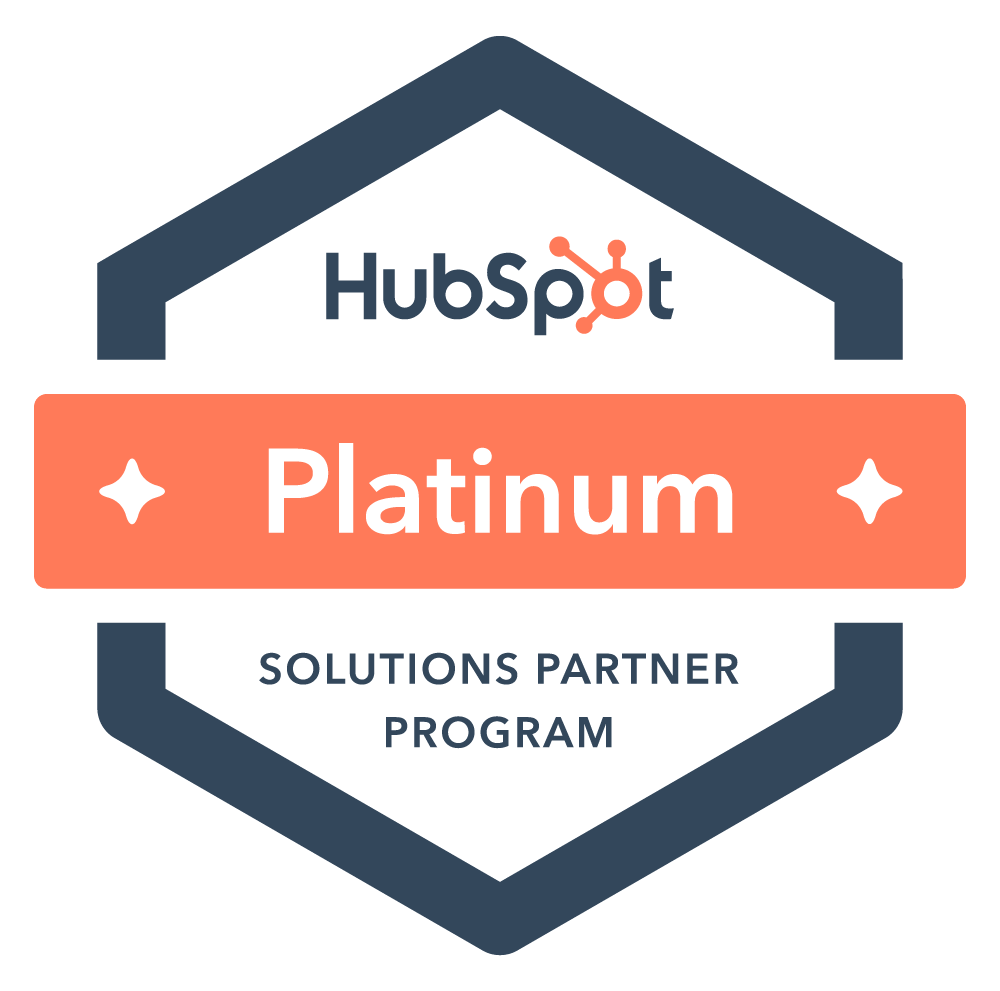
81% of web users will look for information on products or services online before making a purchase. As marketers, you need to put your brand at the right place and at the right time. To do that on the internet, you have to make sure your website is visible and easily-found by the right people. The process of making your website search-friendly is called Search engine optimization (SEO).
SEO is a key aspect in building your organic traffic to your website. In this article, we’ll be sharing with you actionable tips on how to build or improve your organic traffic.
What is Organic Traffic?
There are different types of visitors who visit your website everyday, categorised by where they come from or ‘traffic source’. Paid traffic is visitors who came from paid sources such as online ads. On the other hand, organic traffic refers to visitors who came ‘organically’ from non-paid sources i.e. search engines like Google and Bing.
Building and improving your organic traffic is one of the best ways to optimise your website for better visibility online. If you want your website to rank well on Google search results, you have to optimise organic traffic. While paid traffic is helpful to attract visitors in the short-term, organic traffic is more sustainable with compounded benefits over a period of time.
The goal of SEO is to get more organic traffic. That means you can’t pay to rank on page 1 of a Google search (you may pay to rank for search ads). Organic visitors are typically driven to your website when it matches a search query or keywords. These keywords can be set and organised by SEO marketers using a variety of tools and plugins.
Read more: What is SEO? A Comprehensive Answer
Why Should You Optimise Organic Traffic?

1. Organic traffic is highly scalable and cost effective
2. SEO is a less pushy approach while still gives you a competitive edge
3. SEO appeals more naturally to users who are adverse to intrusive ads
4. SEO encourages and enhances brand and trust-building
How to Build & Improve Organic Traffic?
Now we know what organic traffic is and why you should optimise it, let’s jump right into some broad ways to improve organic traffic.
1. Create Content Strategically
Search engine crawlers tend to rank your website higher when there is a high quality content that uses proper links and SEO properties. All content created on the web isn’t equal. Some increase your organic search traffic, while some are meant for conversions.
So, what’s the solution? You need to create SEO-friendly content that will be efficient for your website to build organic traffic. Here are some details you need to know on how to create a well-optimised content.
a. Categories of Keywords
There are commonly 4 types of keyword categories; Informational, navigational, transactional and commercial.
When planning your content such as blog articles, landing pages or even service pages, identify which stage your audience is at; awareness, consideration or decision. Then, pick out the keyword relevant to the intent of that buyer’s stage. You can use a keyword research tool to find out the keywords that are being ranked and used by your competitors.
b. Consistency & Quality of Content

Write and publish as much as you can, but not at the expense of quality. The more high-quality, high-value materials you have on your website, the more opportunities you create for organic traffic to come your way.
Here are 4 types of content that you can create:
-
Long-form content - aims to answer the topic as much and thorough as possible
-
Infographics - makes the content shareable and easily digestible
-
How-to’s - content that guides readers how to solve a problem
-
Videos or moving graphics (GIF) - commonly used for step-by-step or explainer videos
c. Repurposing Content
Repurposing is the process of reusing or reformatting content and republishing it in a new form. For example, you can create a video using the content of a blog you’ve written. Videos can perform well on a SERP. The advantage of repurposing is that you save time and effort from the need to churn new content all the time, yet offer something novel to your audience.
Quick Tip: Select only high-performing content to be repurposed. This way, it can reach more audiences who prefer one format over the other while still delivering popular pieces that people want to consume.
d. Optimising Content with Search Intent
The term "search intent" (also known as "user intent" or "audience intent") is used to describe the goal of an online search. After all, everyone who makes an internet search has an intention or a need they need to fulfil.
You can use search intent optimization to:
-
Meet the needs of your target audience
-
Attract long-term, qualified leads to your site
-
Keep visitors on your page and increase web analytics
-
Increase your brand's visibility
Read more: SEO Best Practices to Help You Rank in Google
2. Conduct a Competitive Analysis (Competitor Research)

Competitive Analysis, also known as competitor research, is the assessment of the strengths and weaknesses of current and potential competitors. To know your enemy is to win half the battle, as the old adage says. Understanding the gaps between what you’re doing and what your competitors are doing can bring valuable insights to your organic traffic optimization.
What to know about Competitive Analysis:
-
Competitive analysis helps you identify your rivals' competitive edge. This gives you a plus point to leverage and enhance your competitive advantage to cater to your audience in the market better.
-
Competitive analysis helps you build your brand awareness. It assists you in identifying and exploiting your competitors' flaws. Their flaws can become your strengths, allowing your company to gain a competitive advantage.
-
A competitive analysis can help you explain and reinforce your value proposition. This helps in the growth of your brand visibility which will eventually lead to building awareness.
-
Competitive analysis should preferably be done on a quarterly basis. This is to keep track with recent entries in the market.
3. Execute an SEO Audit

An SEO audit determines whether there are any issues influencing your site's search engine performance. To improve your organic traffic, you should have data about how your website is performing on search engines. An SEO audit helps you to do just that.
Technical, on-page, and off-page issues that may affect organic traffic to a page are highlighted in an SEO audit, which can be done quite easily using software such as SEMRush or Ahrefs. An SEO audit helps bring valuable data and transparency on things like site crawling, photos, content, URL structure, meta descriptions, keywords, and so on.
Read more: Should SEO be Done In-House or Outsourced?
As a result, we can gain a better understanding of customers' online behaviour and capitalise on possibilities to optimise websites to rank higher to gain visibility and more visitors. An SEO audit ensures no errors are left unrecognised and provides more opportunities for you to improve your organic traffic.
Conclusion
Your website relies on traffic to get leads and customers. It's not always easy to get visitors though. The good news is that you have a variety of options for driving traffic, each with its own set of advantages. When you use optimised content and keywords to climb the ranks, you can gain long-term benefits without relying too much on paid online ads.
By optimising and improving your organic traffic, your pages will be more targeted to your target audience and search engines, and continue to attract visitors. You'll reach more people over time, boost your web exposure, and generate significant leads for your company. Try out these tips for your website, or connect with us to improve your online presence!



